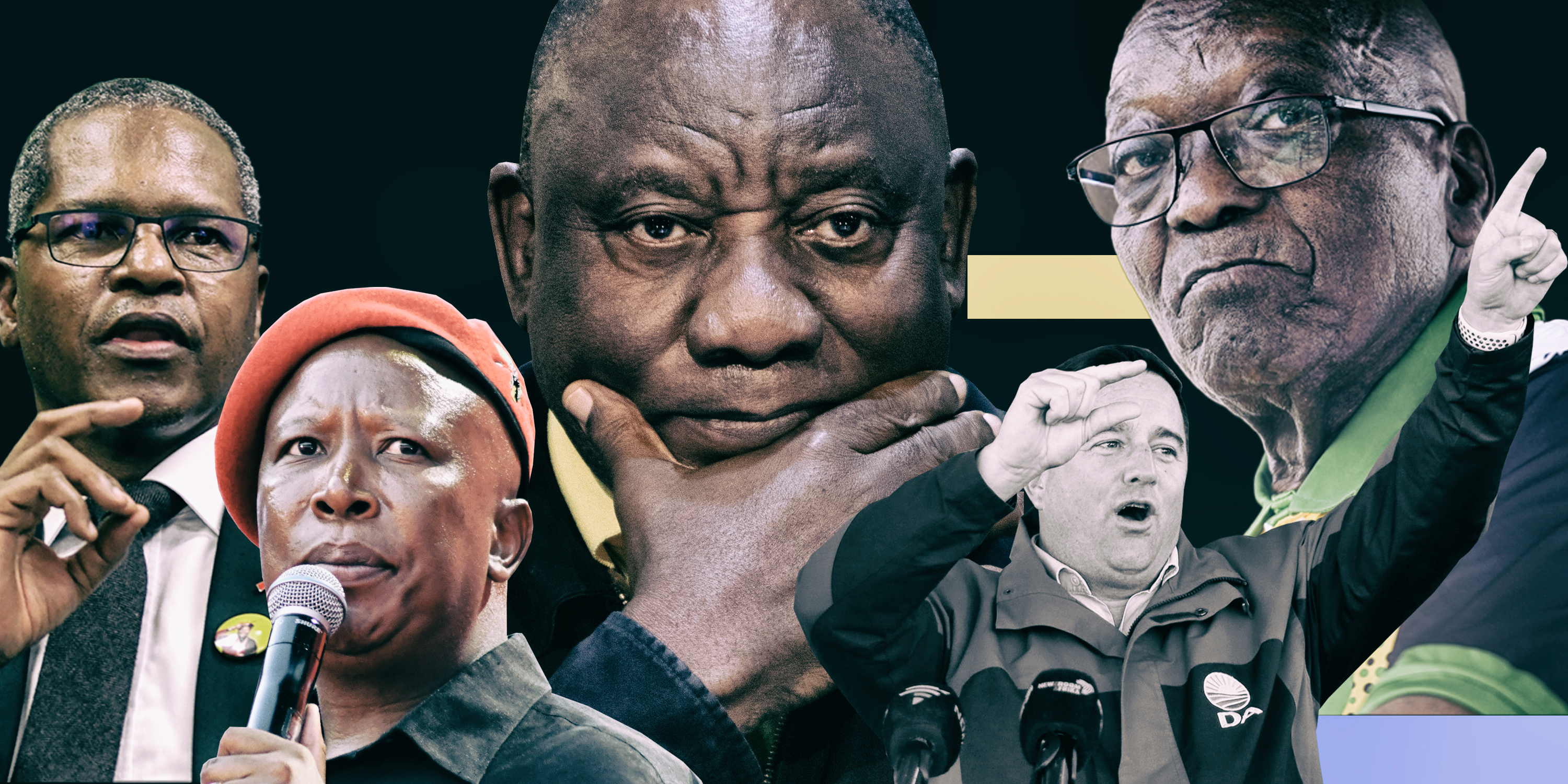While there has been much commentary about the fact we are likely to have a coalition in national government and at least two provinces, one of the questions which emerges now is what our politics will look like in the next national elections, in 2029.
While much can change, KwaZulu-Natal is a useful model to make certain predictions about the next five years of our politics
Polling ahead of Wednesday’s elections suggested at one point that each of four parties could get about 20% of the vote in the province. The ANC, MK, IFP and DA all have significant constituencies there (more recent polling suggests the DA and IFP have slipped substantially).
Read more in Daily Maverick: Elections 2024: On the road
This makes it difficult to predict what will happen in KZN. It could come down to a few thousand votes, or to whether smaller parties support one grouping or another (this surely explains why Roy Moodley, involved in scandals, including paying Jacob Zuma a salary while he was president, has formed his own party in KZN for this election).
This is surely unprecedented in our politics. In the past, almost everywhere, one party has dominated (usually the ANC, sometimes the DA) amid relatively weak opposition.
There was also much speculation about whether any party or movement would one day be able to remove the ANC from power.
However, the 2029 election could well be the story of several bigger parties contesting for power, with none able to dominate or come anywhere close to 50%.
Professor Steven Friedman has pointed to a future dominated by coalitions, where no one party bosses those groupings.
In other words, instead of what we currently see in Joburg or other councils, there will be no contest between an “ANC-led coalition” or a “DA-led coalition”. Rather there would be groupings of parties that have about 20% of the vote in a particular legislature, along with much smaller parties.
Mixed consequences
This will be a huge change. It will mean that no one party dominates or ensures that its policy becomes law.
This will have mixed consequences.
It may well prevent the kind of grand State Capture that occurred during the Zuma era. Had the ANC not dominated our politics as it did then and without Zuma’s dominance of the ANC at the time (much lamented by the ANC now), the Guptas could never have stolen as much as they did.
Also, no one party will be able to force through destructive policies.
However, as has been seen in coalition governments, this does not mean corruption will stop.
The risk is that politicians from different parties will work together with corrupt intent to share the spoils.
This appears to be the next likely outcome — parties working together not out of any shared ideology, but simply to stay in power.
As a result, it will be difficult to have a shared agenda. If this happens, it is likely that none of the major problems that require government intervention will be solved. There will be no agreement on what is to be done and no interest in resolving the problems in the first place.
Role of smaller parties
Also, smaller parties may well continue to play an outsize role in our politics. There will be more incentive for people to form them, even if just for small strategic advantages.
Arguably, this is what has happened in Joburg and several other metros.
Smaller parties will organise along the lines of ethnic identity and personality politics, with more parties that closely resemble MK — marshalled around a particular ethnic identity and one particular personality.
Unfortunately, despite the fact this type of politics will revolve around parties working together, it will increase the incentive for parties to try to divide voters.
Some will use tactics like the DA’s flag-burning advert to gain attention and to incentivise their constituency to vote.
Others may go further and campaign for certain areas, like KZN and the Western Cape, to secede from South Africa.
While this scenario points to significant problems in our future, there are some problems that it does avoid.
Many have been impatient for change in our politics, but it now appears that change will come much more slowly than previously believed, with less opposition to that change.
To put it another way, several years ago, many in the commentariat discussed whether the ANC would give up power peacefully if it fell below 50%. It is surely significant that virtually no one asks that question now.
This is because the pace of change is so slow there is no shock, which also means there is no violent resistance to the change.
Instead of a quick and bloody revolution, there is slow and steady evolution.
Of course, our politics still can and will surprise. It is possible that a grand national coalition will take power, if not now, then in 2029, particularly as the ANC may then realise that would be the best way for it to maintain a large amount of control in government.
That said, the current trends suggest our politics is about to get more complex, with more players, no single-party dominance and fewer principles. DM





